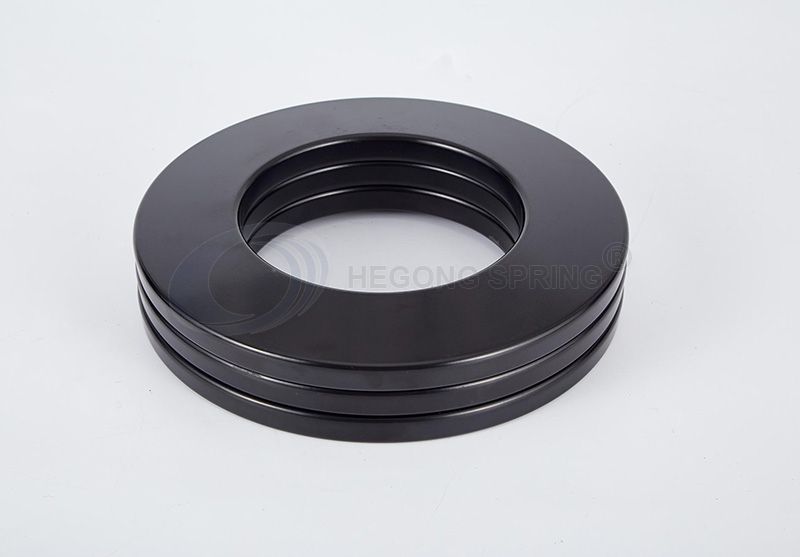How do Belleville disc springs work?
Belleville disc springs, also known as conical disc springs or Belleville washers, are unique mechanical devices designed to store and release energy when subjected to axial loads or compression. Their distinctive conical shape allows them to provide controlled deflection under pressure, making them valuable components in various applications. Let's delve into how Belleville disc springs work and their underlying principles.

Mechanism of Belleville Disc Springs:
Belleville springs work based on the principle of elastic deformation. When a load or force is applied to the disc spring, it undergoes deflection, causing the spring to flatten and change its shape. This deflection stores potential energy within the spring.
Load Distribution:
Belleville disc springs distribute loads evenly across their surface due to their conical shape. The outer edge of the spring bears the most stress, while the inner part experiences less stress. This load distribution allows the spring to handle high forces while maintaining consistent performance.
Axial Compression:
When an axial force is applied to a Belleville disc spring, it compresses along its axis. As the spring compresses, the space between the coils decreases, and the energy is stored as potential energy within the spring material.
Deflection and Energy Storage:
The spring's conical shape allows it to compress and deflect under the applied force. As the disc spring deflects, it accumulates potential energy. This stored energy is proportional to the amount of deflection and the spring's stiffness.
Release of Energy:
When the external force is removed or reduced, the Belleville disc spring returns to its original shape, releasing the stored energy. This release of energy generates a reactive force that opposes the deformation, causing the spring to expand and return to its original position.
Applications of Belleville Disc Springs:
Belleville disc springs find applications in various industries, including aerospace, automotive, manufacturing, and machinery. They are used for tasks such as:
Preload and Compensation: Belleville springs are used to maintain constant tension or preload in bolted assemblies, ensuring proper joint integrity.
Vibration Damping: They can be used to dampen vibrations and absorb shocks in mechanical systems.
Load Balancing: In mechanical systems with varying loads, disc springs can help balance and distribute forces.
Pressure Relief Valves: Belleville springs are often used in pressure relief valves to control and release excess pressure.
Clutches and Brakes: They find application in clutches and brakes, providing controlled engagement and disengagement.
Heavy Machinery: Belleville springs are used in heavy machinery to absorb impact and reduce wear and tear.
Safety Applications: They are used as safety devices in critical systems, such as in aerospace, to handle emergency loads.
In summary, Belleville disc springs operate based on the principles of elastic deformation and potential energy storage. Their unique conical shape allows them to provide consistent load distribution, controlled deflection, and reliable energy storage and release. These properties make Belleville disc springs essential components in various industries where controlled compression, load distribution, and energy management are crucial.
评论
发表评论